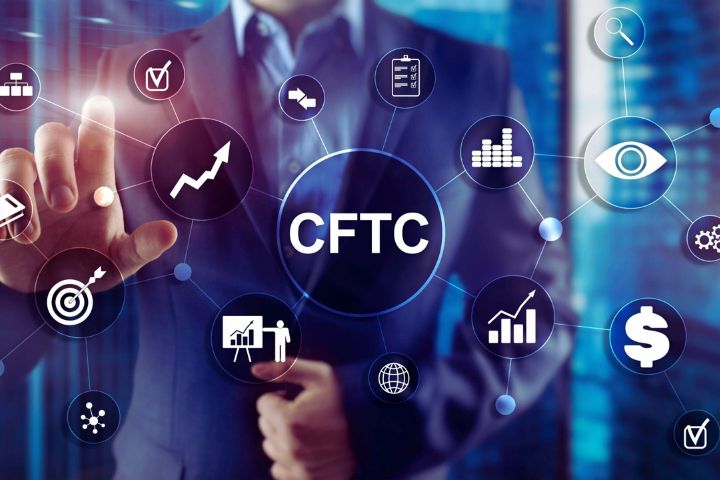What Is The CFTC Regulation?

Table of Contents
Introduction
The Commodity Futures Trading Commission (CFTC) is an oversight body in the United States that regulates the trade of futures and derivatives markets. It protects the public from fraud and illegal practices related to the trade of financial futures.
History
The CFTC was established in 1974 with a primary focus of regulating trading of futures related to agricultural commodities. Over time, since it’s inception, the CFTC has evolved and has become the regulator for global derivatives markets. It also regulates the trading of assets related to these derivatives.
Since the 1970s, trading in futures has rapidly expanded beyond agricultural commodities into a considerably vast range of financial instruments, including foreign currencies. The CFTC was established through the Commodity Futures Trading Commission (CFTC) Act in 1974 created to replace the U.S. Department of Agriculture’s Commodity Exchange Authority. As a result, there were massive changes to the Commodity Exchange Act (CEA) of 1936, which in turn changed the original Grain Futures Act of 1922.
Tasks
In accordance with the CEA, the CFTC regulation conducts strict adherence to laws governing:
-Derivatives markets
The CFTC encourages competitiveness and efficiency in the derivatives markets by ensuring their integrity, protection against abusive trading practices and fraudulent activities. Through its oversight, the CFTC has enabled the derivatives markets to fully tend to the discovery of prices and to off-set price risk.
-Investigations and prosecution
The CFTC investigates and prosecutes commodities fraud, including foreign currency schemes, energy manipulation and hedge fund fraud. The CFTC also works with other federal and state agencies to bring criminal charges on those found guilty of these and other actions.
-Swaps regulation
Swap regulation is overseen by the Consumer Protection Act and the Dodd-Frank Wall Street Reform. The Consumer Protection Act also regulates Swap dealers by stating that:
All swap dealers are governed by margin requirements to ensure lower risk in the market.
Swap dealers are required to adhere to strict business conduct standards in order to lower price risk and promote market transparency.
Frequent record keeping by swap dealers will be required to ensure regulators are in control of the markets.
-Increased transparency to improve pricing
Regulated exchanges will be required in the derivatives markets and on swap execution facilities. Open ended trading of swaps will improve competition and produce better pricing to the marketplace to lower the costs to the businesses as well as consumers.
-Establishment of clearing houses
In order to establish reduced risk to the public, clearing houses will act as middlemen between the two trading parties in the transaction. The clearing houses will take on the risk that one party may default on its obligations. In respect to this, central clearing houses will be in control of the derivatives markets to ensure lower risk in the financial sector.
Clearing houses have served the purpose of lowering risk in the futures marketplace. The Dodd-Frank act also brings this market innovation to the swaps marketplace.
Regulations
The jurisdiction of the CFTC regulation has grown to include non-U.S. futures exchanges that permit access to trading by U.S. persons and transactions that have a direct and significant connection on the U.S. commerce. The CFTC also has broad enforcement capabilities, with respect to trading of physical commodities, where it is empowered to pursue allegations of market manipulation or other potential wrongful activities.
The CFTC regulations allow it to make rules, request reporting of market information, and bring actions against companies or individuals for alleged fraud. As such, the CFTC carrys out a robust enforcement program that takes action against commodities market participants for fraud, market inference and manipulation, disruptive trading, and violations of its regulatory statutes.
The CFTC works in conjunction with the Department Of Justice (DOJ), which has authority to prosecute criminal violations of the Commodity Exchange Act (CEA) and other related laws.
With the international expansion of U.S. companies, the CFTC regulation enforces U.S. laws for potentially problematic trading in overseas markets, including when that trading is alleged to have had a severe impact on U.S. persons and markets. The CFTC also has jurisdiction with respect to certain over the counter transactions. A transaction in a physical commodity that has some connection to U.S as well as inter-state commerce — this means a transaction between a person in a U.S. state or territory and someone located outside that particular state or territory —potentially falls within the CFTC’s vast anti-fraud and anti-manipulation authority.
The costs and consequences of a CFTC investigation can be quite considerable. The CFTC has the authority to pursue civil monetary penalties against companies and individuals held directly liable for regulatory violations. Monetary penalties can range from a few hundred thousand to a billion, or more, U.S. dollars for violations that involve:
- Aggravating factors such as significant market breach
- Customer harm
- Knowingly offering falsified information to the investigating agency
- Companies and individuals may reduce the severity of the penalty amounts by reporting violations and implementing remedial measures.
Summary
The CFTC regulations have faced many challenges undoubtedly in the oversight of the futures markets and in implementing the Dodd-Frank Act. The CFTC is working hard to update it’s activities in-line with the daily changes in the information technology sector.
Through vigorous oversight of the swaps market and commodity futures and options markets, the CFTC also seeks to close the gaps in its regulatory structure so as to curb any issues that may render it unable to respond quickly to the rapidly-evolving markets.
Through strong, intelligent regulation, in hand with aggressive enforcement mechanisms, the CFTC regulation will surely be able to fully protect the American markets and the global economy as well.






